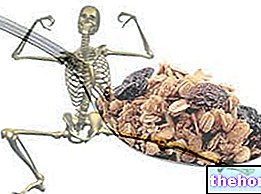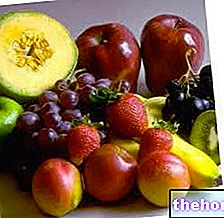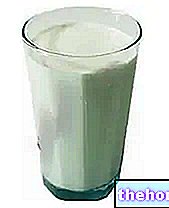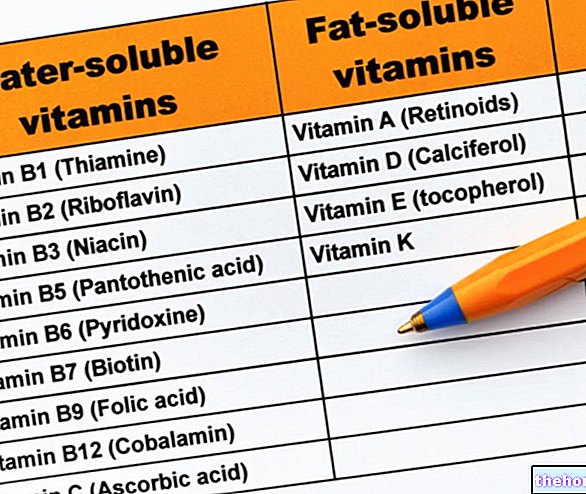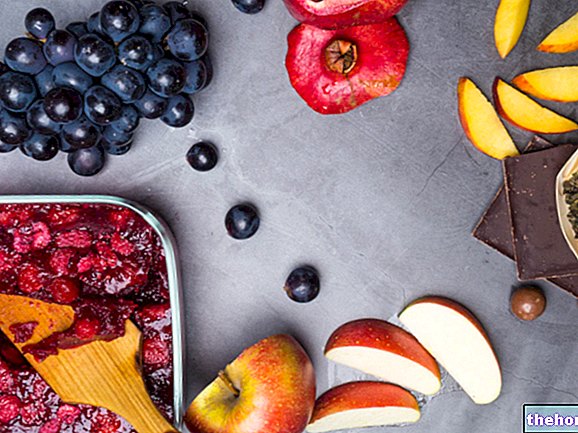"Fructose
Fructose and insulin
The glycemic index of fructose is very low (19-23) especially when compared with that of sucrose and glucose. Limiting sugar in favor of fructose may therefore seem very useful in preventing type II diabetes. This property of fructose it was already known towards the end of the nineteenth century. Today we know that the regulation of blood sugar is also very important to prevent overweight. Furthermore, the presence of fructose in food slows the rate of absorption of the other carbohydrates it is associated with.
In the "article dedicated to the relationship between fructose and diabetes, however, we warn against excessive enthusiasm for this sugar.
Excess of fructose
The excess of fructose can first of all determine meteorism. The abnormal formation and accumulation of intestinal gas is the result of the saturation of the fructose transporters, necessary for its absorption from the intestinal lumen to the blood; in these cases, the fructose escaped absorption continues its journey towards the colon, where it is fermented by the bacterial flora with the formation of gas and organic acids responsible for bloating, diarrhea, flatulence and gastrointestinal pain. The ability to absorb fructose is particularly limited in some individuals, for whom the term "fructose malabsorption syndrome" was coined, a condition often associated with irritable bowel problems.
According to some studies conducted in 2004 in a Florida university, the intake of fructose would determine a greater propensity to eat again after its intake, opening the doors to being overweight and, indirectly, to diabetes itself. The lack of insulin and leptin secretion would be the main cause of the lack of onset of satiety.

Considered from another point of view, all these studies have simply confirmed that an "excessive intake of levulose is harmful to our organism. As we have seen in the previous paragraph, there is a limit beyond which the metabolism of fructose inevitably leads to the formation of According to scholars, this limit would be between 40 and 50 g per day; clearly, this threshold depends on the degree of physical activity of the subject and the caloric richness and composition of his diet. Some studies and common sense applied to physiological bases on fructose metabolism, suggest how its excess becomes particularly deleterious in diets already rich in calories and simple sugars.
Frequent use of fruit juices, sweets or other foods containing fructose can lead the individual to easily exceed these maximum doses. Just think that two cans of a sweetened drink can provide up to 40-50g of fructose. On the contrary, it takes two kilograms of strawberries or one kilogram of bananas to reach this threshold.
So to avoid the damage from excess fructose just follow the general rule that provides for a limited consumption of simple sugars during the day.
Fruit, especially those rich in fiber, can be eaten safely as well as vegetables. Moderate use of fructose as a substitute for sugar helps keep blood sugar constant and is totally free of side effects.
Fructose and food intolerances
A small part of the population is fructose intolerant. The characteristic symptoms of this pathology are diarrhea, abdominal pain and flatulence. This intolerance is dose dependent and totally asymptomatic if you do not eat foods containing fructose or sucrose.
If the amount of fructose ingested is higher than the intestinal absorption capacity, even a healthy person can experience the same symptoms. Given the increasingly conspicuous use of this sugar in the food sector, it is estimated that every day many people suffer intestinal problems linked to excessive intake of fructose with food.
Other Foods - Sweeteners Acesulfame K Aspartame Sugar beet Sugar cane Sodium cyclamate Dextrose Sweeteners Erythritol Fructose Maltose Mannitol Molasses Saccharin Saccharose Maple syrup Agave syrup Fructose syrup Glucose syrup Sugar sorbitol Articles Stevia Sucralitol sugar SWEETENERS Categories Alcoholic Foods Meat Cereals and derivatives Sweeteners Sweets Offal Fruit Dried fruit Milk and Legumes Oils and Fats Fish and fishery products Salami Spices Vegetables Health recipes Appetizers Bread, Pizza and Brioche First courses Second courses Vegetables and Salads Sweets and Desserts Ice cream and sorbets Syrups, liqueurs and grappas Basic Preparations ---- In the Kitchen with leftovers Carnival recipes Christmas recipes Light diet recipes tici Recipes for the Holidays Recipes for Valentine's Day Vegetarian Recipes Protein Recipes Regional Recipes Vegan Recipes

